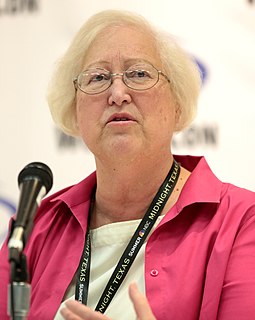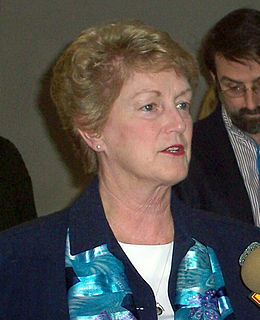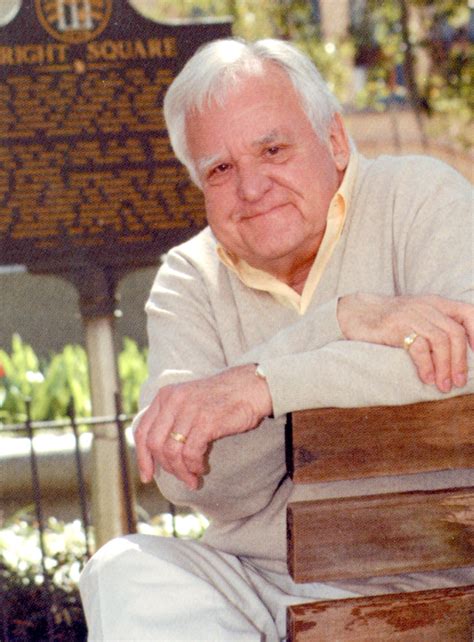A Quote by Connie Willis
One of the nastier trends in library management in recent years is the notion that libraries should be 'responsive to their patrons'.
Quote Topics
Related Quotes
There are questions as to whether it should even exist. Who should corporations be responsive to, the management of a corporation? Theoretically they are responsive to the shareholders, but I why not to the so - called stakeholders, the work force and the community? Nothing in economic theory opposes that. Those are social and political decisions.
I claim that this bookless library is a dream, a hallucination of on-line addicts; network neophytes, and library-automation insiders...Instead, I suspect computers will deviously chew away at libraries from the inside. They'll eat up book budgets and require librarians that are more comfortable with computers than with children and scholars. Libraries will become adept at supplying the public with fast, low-quality information. The result won't be a library without books--it'll be a library without value.
I am a librarian. I discovered me in the library. I went to find me in the library. Before I fell in love with libraries, I was just a six-year-old boy. The library fueled all of my curiosities, from dinosaurs to ancient Egypt. When I graduated from high school in 1938, I began going to the library three nights a week. I did this every week for almost ten years and finally, in 1947, around the time I got married, I figured I was done. So I graduated from the library when I was twenty-seven. I discovered that the library is the real school.
Now, many public libraries want to lend e-books, not simply to patrons who come in to download, but to anybody with a reading device, a library card and an Internet connection. In this new reality, the only incentive to buy, rather than borrow, an e-book is the fact that the lent copy vanishes after a couple of weeks.
Children have to have access to books, and a lot of children can't go to a store and buy a book. We need not only our public libraries to be funded properly and staffed properly, but our school libraries. Many children can't get to a public library, and the only library they have is a school library.
We like to say the Internet is the ultimate library. But libraries are libraries because people come together and fund them through taxes. Libraries actually exist, all over the country, so why is it such a reach to imagine and to someday build a public institution that has a digital aspect to it? Of course the problem is that libraries and other public services are being defunded and are under attack, so there's a bigger progressive struggle this plays into.
In a library, you can find small miracles and truth, and you might find something that will make you laugh so hard that you will get shushed, in the friendliest way. I have found sanctuary in libraries my whole life, and there is sanctuary there now, from the war, from the storms of our families and our own minds. Libraries are like mountains or meadows or creeks: sacred space. So this afternoon, I'll walk to the library.
"Children, don't speak so coarsely," said Mr Webster, who had a vague notion that some supervision should be exercised over his daughters' speech, and that a line should be drawn, but never knew quite when to draw it. He had allowed his daughters to use his library without restraint, and nothing is more fatal to maidenly delicacy of speech than the run of a good library.
I have always had a special affinity for libraries and librarians, for the most obvious reasons. I love books. (One of my first Jobs was shelving books at a branch of the Chicago Public Library.) Libraries are a pillar of any society. I believe our lack of attention to funding and caring for them properly in the United States has a direct bearing on problems of literacy, productivity, and our inability to compete in today's world. Libraries are everyman's free university.

































